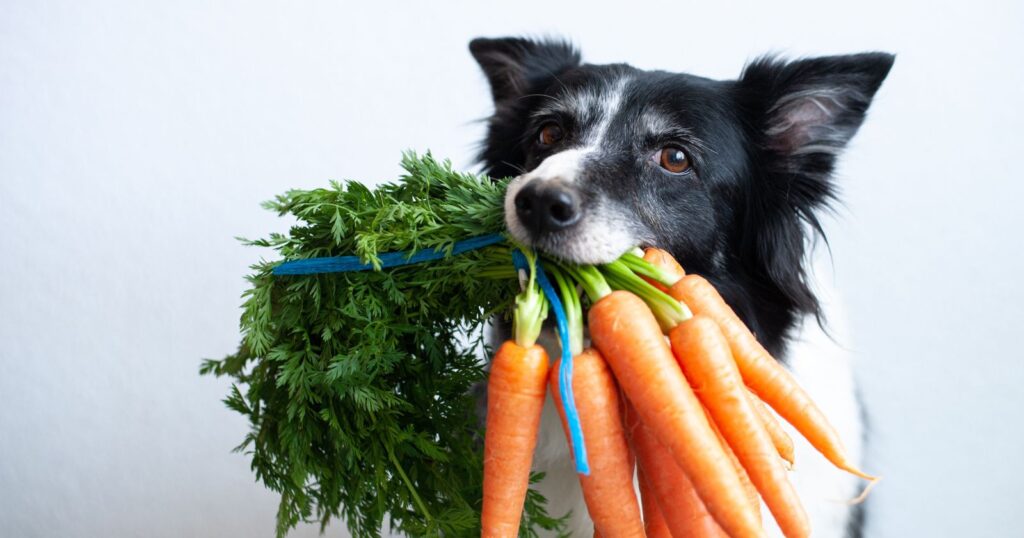Of My dog is veganARTE’s “Regards” program kicks the anthill by tackling an inevitably controversial topic: vegan food for dogs. Animal cruelty or ethical commitment to the planet? The show asks the question without providing a definitive answer. Because despite the initiatives that are thriving, scientific studies do not confirm that a 100% vegan diet is beneficial for the health of dogs. However, some people don’t wait for this proof to take the plunge. Avant-garde or enlightened? The debate has begun.

Like Yvonne, owner of Sky. This German has been a vegetarian for over ten years and vegan for a few months now. She wants to eliminate meat from her dog’s diet. For this, this mother of a family calls on a veterinarian who advises her on a six-week program: mix her dog’s meat croquettes with vegetable croquettes and gradually reduce the dose of meat until it is completely gone. All this while keeping a close eye on Sky’s health, stools and mood.
“I don’t understand people who say they love animals, spoil their dog (…) and buy him the cheapest meat. Except she comes from another animal that is just as intelligent, sociable and affectionate as their dog.”Yvonne justifies in front of ARTE’s cameras, referring to the pig. “Pigs can respond to their name when called. They are curious animals that like to explore a new object that has been introduced to their environment.”recalls the association L214 on its site.
In addition to the ethical issue, Yvonne also makes an important argument about her desire to ban meat in her home, even in the bowl of her four-legged friend: the impact of breeding on the environment.
180 kilos of meat consumed per year
According to ARTE figures, the number of dogs in Germany increased significantly between 2000 and 2020, from 5 to 10.7 million. In France there were 7.5 million dogs in 2020. A small dog consumes an average of 180 kg of meat per year… compared to an average of 55 kg per person. Are dogs responsible for climate change or could they at least play a role in the fight to preserve the environment and biodiversity?
For Frank, who owns two poodles, the answer is clear: he will continue to feed his pets meat. “The dog is a carnivorous animal, it is its nature”he claims in the report before presenting the pieces he gives to his doggies: pork belly and lungs or deer ears. “Of course I think about climate change, but I have no qualms about feeding my dogs meat because the bits I give them are by-products that no one eats. I don’t see why I wouldn’t give it to my dogs, otherwise thrown it away or burned it.”
Frank even defends this point of view professionally: former owner of a pet store, he opened a butcher’s shop for dogs and cats. There people can buy anything they don’t want to eat and feed it to their pets. Isn’t this company a response to the massive food waste resulting from, say, the slaughter of animals or the elimination of male chicks (which cats seem to love, according to Frank)?
Dogs victims of cruelty?
Tessa (ex-architect) and Valérie (veterinarian) disagree. The co-founders of the German start-up Vegdog, which specializes in the production and sale of vegan food for dogs, are targeting owners who are also vegan or whose dogs have digestive problems due to meat. They work on their recipes with professionals and attach great importance to the use of organic and high-quality products. On the menu of their pate? Soy, linseed, zucchini, cabbage or even chia seeds… A mixture adapted to the metabolism of the descendants of the wolf, whose domestication by man has influenced its tolerance to certain foods. But not 100% according to a latest vet interviewed by ARTE.
For her, the ideal is a mixture of vegetable and animal foods. As for cats, it is better to adopt a rabbit, because for her, depriving her of meat completely is just “animal cruelty”. This argument emerges throughout the report or in the comments on ARTE’s YouTube channel. Is meat cruelty depriving your pet, even if it remains healthy? And what about animals raised to be eaten, in living conditions that no human could bear? A disregarded reality that nevertheless deserves to be taken into account in this reflection as complex as it is fascinating.
View the ARTE report: